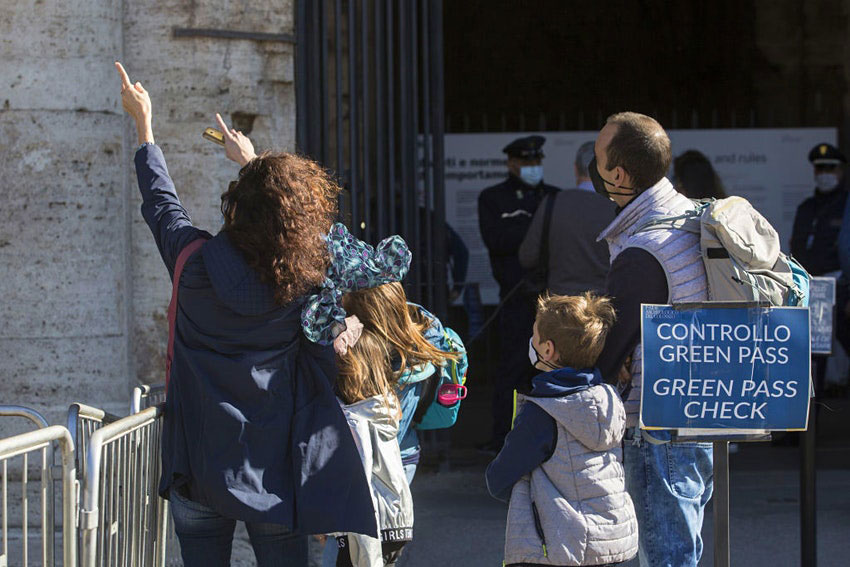
Italy tightens COVID-19 measures and extended state of emergency until spring 2022
TripFalcon December 27, 2021
Last Update: 2021-12-27 14:33:46Italy is increasing COVID-19 measures, including extending its state of emergency until March 31, 2022 and tightening 'super green pass' rules, as cases of the highly-transmissible Omicron variant continue to climb across the country.
The Italian government has agreed to extend its state of emergency until March 31, meaning that certain COVID-19 mitigation measures will remain in place until then, though not all. Under new measures announced on Christmas Eve, it will be necessary for people to wear masks outdoors until January 31, but the more protective FFP2 (or N95) masks will be required in indoor areas like museums, theaters, sports arenas and on public transport.
Italy is also extending the use of its super green pass. The super green pass is proof of vaccination or recovery from COVID-19 and is used to grant the holder access to many non-essential services across Italy. From December 30, it will be required to enter bars, restaurants and indoor venues where food and drink are served. It will also be required to access museums, gyms, swimming pools and wellness centers. Previously people could show proof of a recent negative COVID-19 test to enter these places but that option will no longer apply.
In an effort to encourage booster uptake, Italy's green pass will have a six-month time limit rather than nine for vaccinations, which means that people will no longer be able to access many services if more than six months have passed since their last recommended dose. The time limit comes into effect on February 1.
Italy also has a green pass that allows people who have not been vaccinated to get tested every 48 hours to access services like public transport.
 Green passes are part of daily life in Italy © Getty Images
Green passes are part of daily life in Italy © Getty Images
Under the latest measures, Italy is also closing nightblubs and discos until January 31, 2022. Concerts and open-air events are also banned until then.
Italy entry rules for travelers
Meanwhile, Italy also tightened its entry rules earlier this month. As of December 16, people from European Union countries must now produce a negative PCR test taken within 48 hours of departure or an antigen test taken in the 24 hours prior to entering Italy, even if they have proof of vaccination like the EU digital COVID certificate. This puts them in line with travelers from non-EU countries like the US, UK and Canada who face the same rules.
As well as producing a negative test taken 72 hours prior to arrival, unvaccinated travelers are now required to self-isolate for five days. They must produce a second negative test at the end of that period to be released from quarantine.
How can tourists access Italy's green pass
Italy recognizes the AstraZeneca, Covishield, Pfizer, Moderna or Johnson & Johnson vaccines. For a person to be considered "recently recovered" from COVID-19, it means that no more than 180 days have passed since their last positive swab.
Tourists in Italy can present their official vaccination certificate in place of a green pass. For most Europeans that's the certificate that's compatible with the EU digital COVID cert. For Americans, it's the ‘white card’ with the CDC logo. According to the US Embassy in Italy, those vaccination cards can be used to enter spaces where the green card is required. In order for foreign vaccination certificates to be valid in Italy, they should be issued in Italian, English, French, Spanish, or German.

